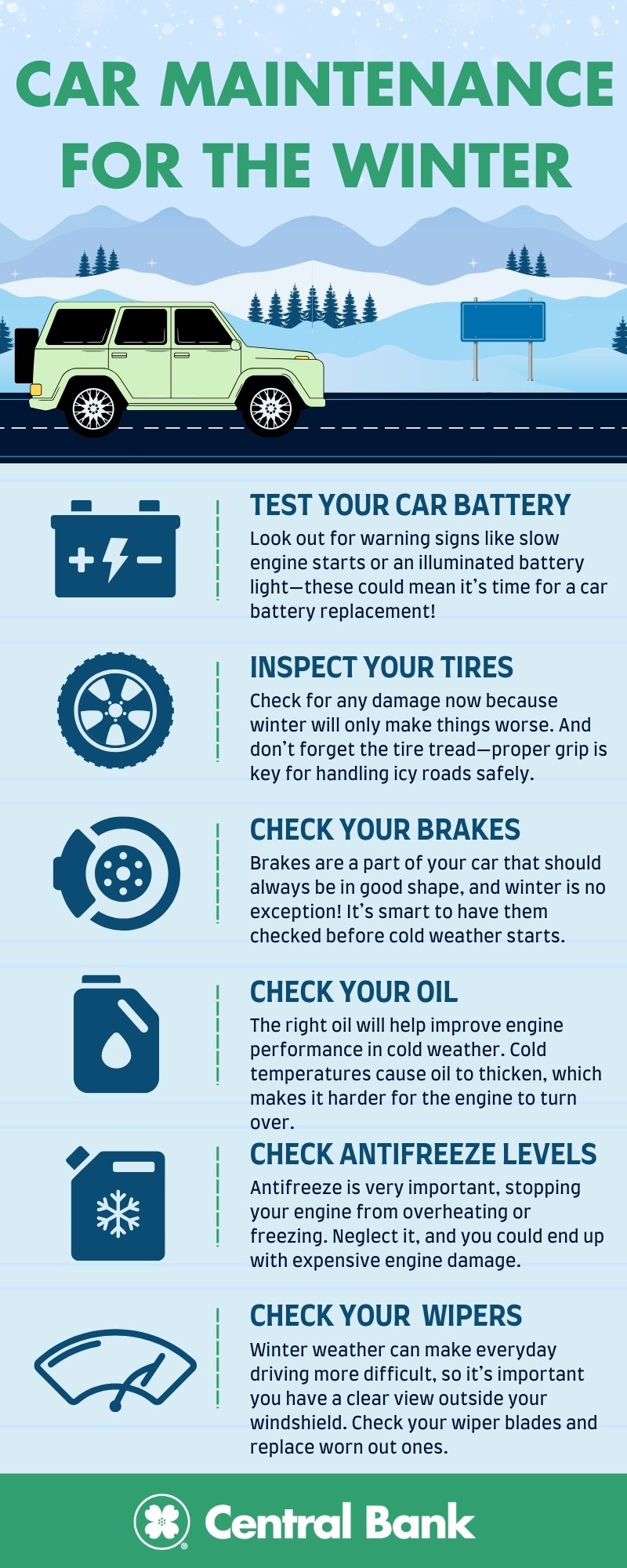Winter might bring snow days and fun building snowmen, but when it comes to your car, it’s no time to mess around. Follow our tips to ensure your safety on the road!
-
Check Your Oil
The right oil for your car will help improve engine performance in colder weather. Cold temperatures cause oil to thicken, which slows its flow and makes it harder for the engine to turn over. Regular oil changes help your engine life, meaning you can keep your car for longer. -
Check Antifreeze and Coolant Levels
Antifreeze prevents your engine from overheating or freezing. Neglect it, and you could end up with expensive engine damage. To keep things running smoothly, check your owner’s manual for how often to add more and keep your engine in tip-top shape. -
Inspect Your Tires
Before winter weather hits, it’s a great time to give your tires attention. Look for any damage now, because winter will only make things worse. And don’t forget the tire tread—proper grip is key for handling icy roads safely. Make sure your tires are ready to tackle whatever winter throws its way! If your tires are not up to grade, switch them out to prevent an accident. -
Consider the Winter Tire
Tires are what keep your car safely on the road, so it’s crucial they’re in good shape—especially for winter. If you live where icy roads are common, consider switching to a winter tire for the season. Made specifically for cold weather, winter tires have smaller grooves that grip the road better, helping you stay steady and safe on the road.
-
Tire Pressure
Make checking your tire pressure part of your regular routine! Before you hop in the car to do some holiday shopping make sure your tire pressure is suitable to drive on. For winter, 30 to 35 PSI is generally ideal. Driving on low tire pressure? It can make braking and handling less responsive. If the pressure’s low, always fill it up! If you own a garage, keep your car parked inside - cold weather decreases your tire pressure. -
Check Your Brakes
Brakes are one part of your car that should always be in tip-top shape, and winter is no exception! Have them professionally checked before cold weather starts, especially if you hear any squealing. While the emergency brake is a helpful backup, be careful using it in winter—it can freeze, making it hard to drive off after use. -
Check Your Windshield Wipers and Car Defroster
Winter weather makes driving more difficult, so it’s important you have a clear view outside your windshield. Check your wiper blades and replace worn out ones. Make sure your car defroster is effective before cold weather arrives or you’ll be waiting longer or scraping ice off your windshield before work. -
Test Your Car Batteries
Cold weather can negatively affect your car battery, so it’s smart to test its health before winter. Look out for warning signs like slow engine starts or an illuminated battery light—these could mean it’s time for a car battery replacement! On average a battery should be replaced every 3 years, but it varies by case. As winter approaches, take extra care with your vehicle! If you need help getting it winter-ready, consult a professional for car repair and advice.